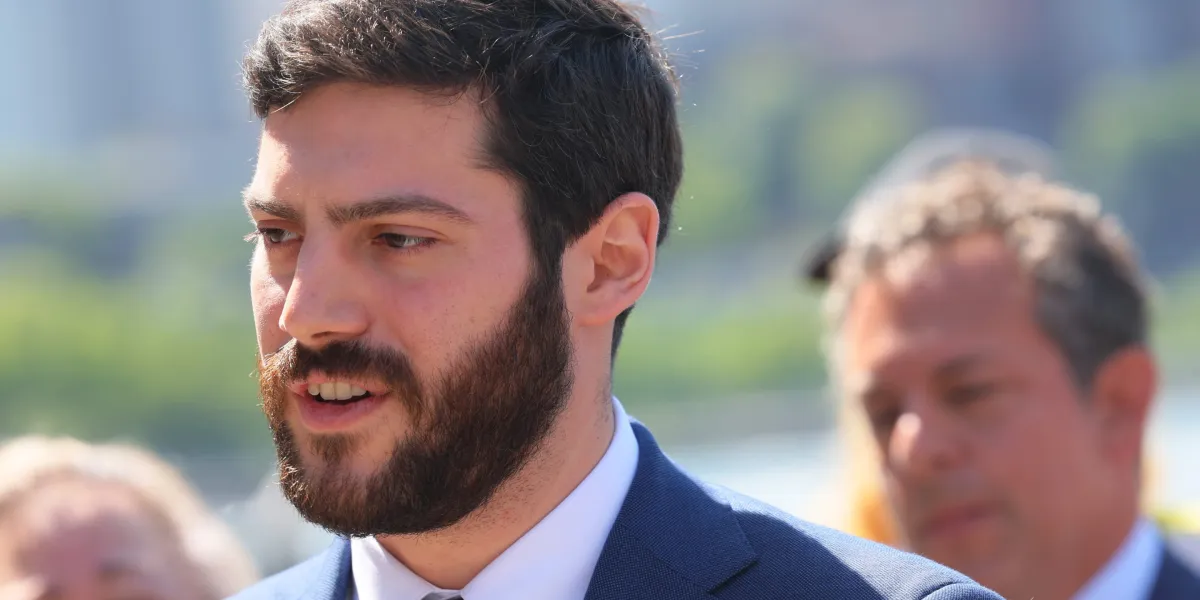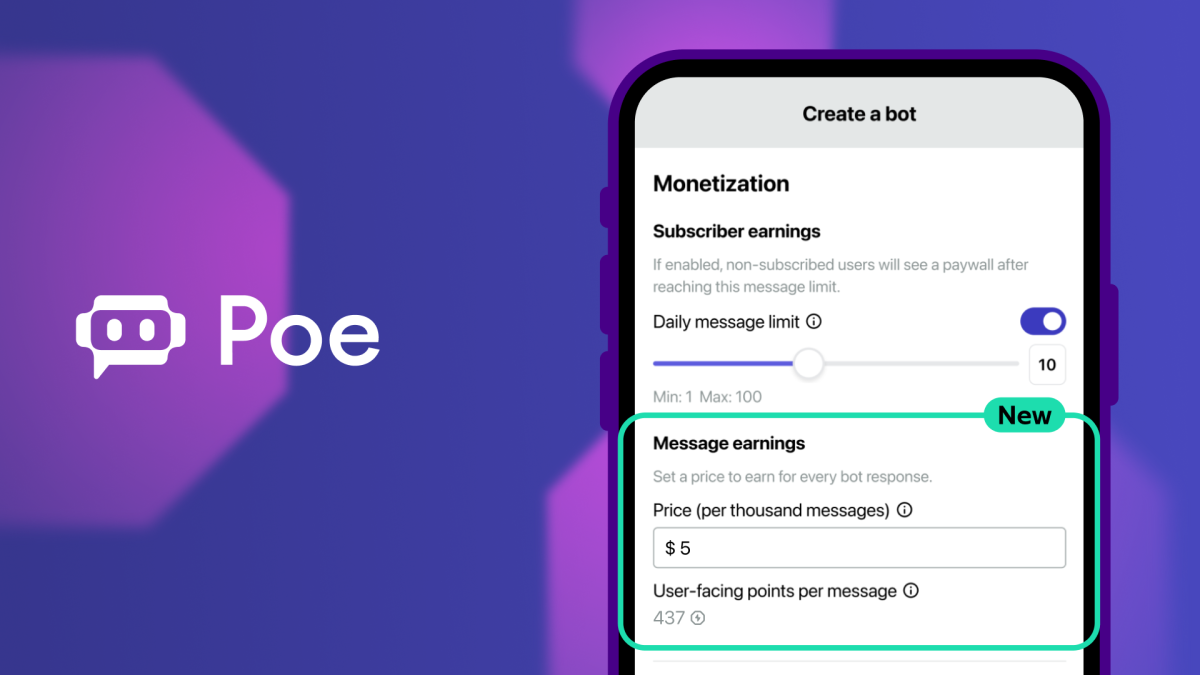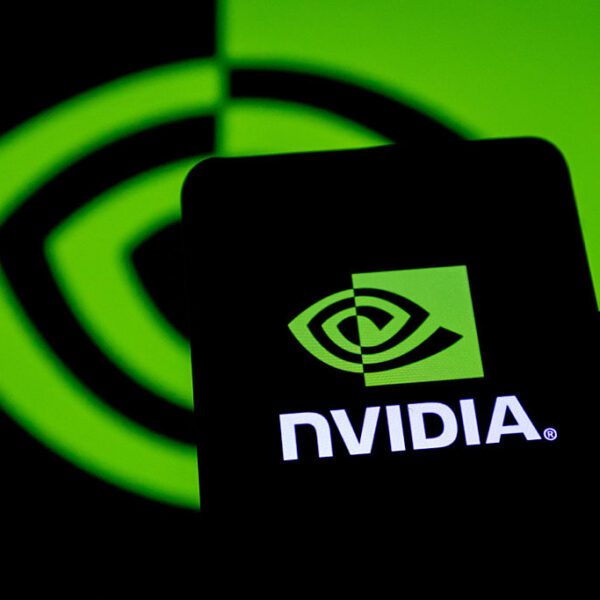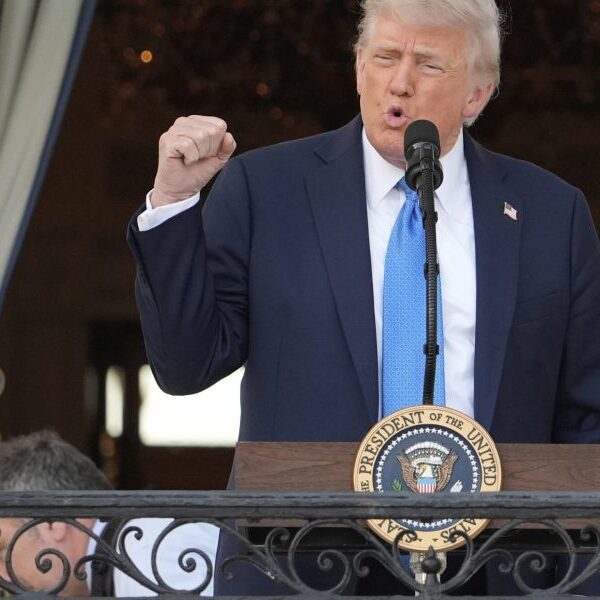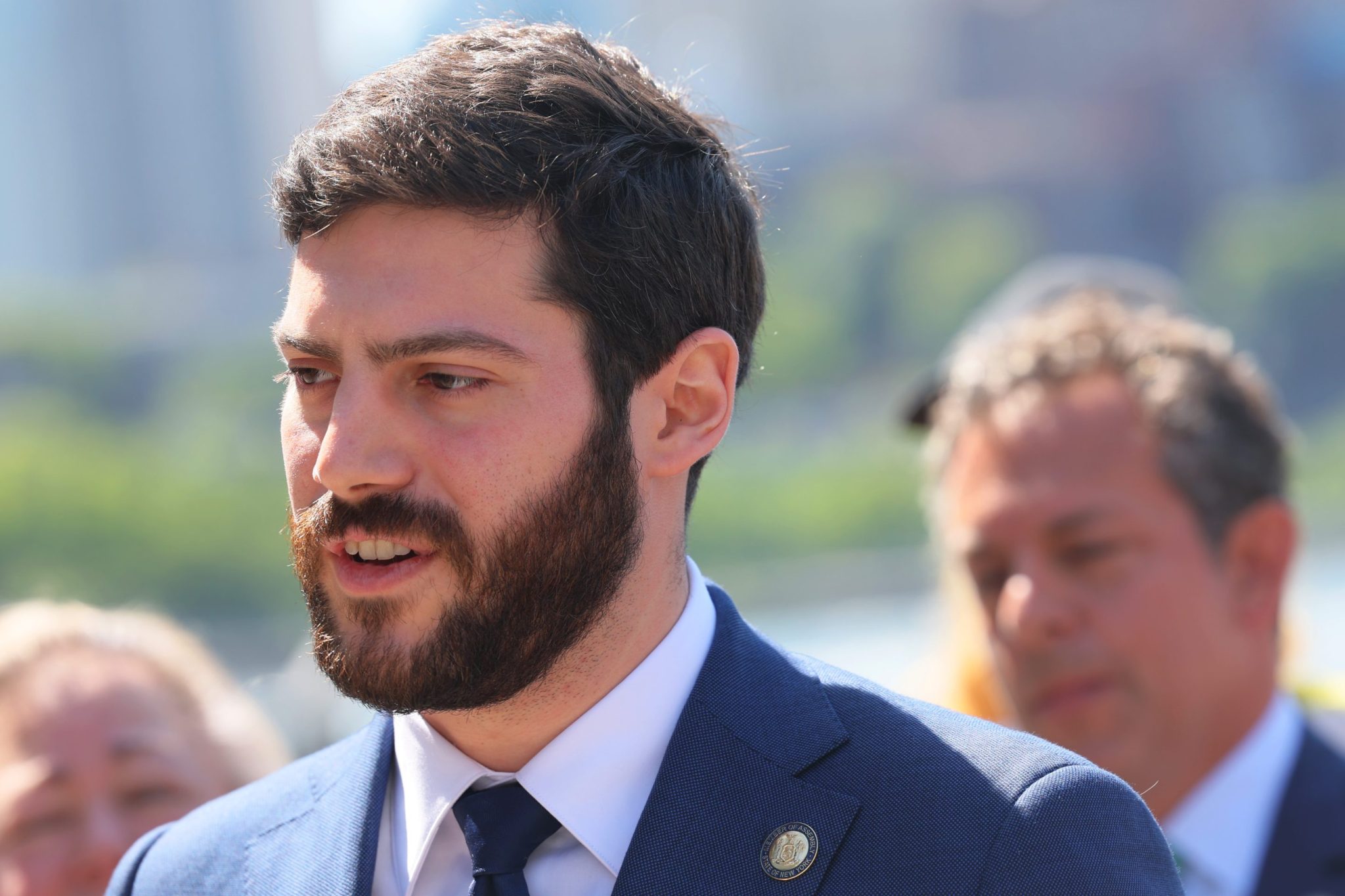
Welcome to Eye on AI, with AI reporter Sharon Goldman in for Jeremy Kahn, who is traveling. In this edition…AI politics in a New York congressional race…Microsoft, NVIDIA and Anthropic announce strategic partnerships…Cloudflare outage causes internet outages including AI sites such as OpenAI, Anthropic and Perplexity…Jeff Bezos creates AI start-up where he will be co-CEO..Sam Altman and Masayoshi Son back new AI research lab aiming to revive the spirit of Bell Labs…Japanese AI darling Sakana AI raises $135 million at $2.65 billion valuation.
Leading the Future — a $100 million pro-AI super PAC formed in August and backed by Andreessen Horowitz and OpenAI president Greg Brockman — has identified its first target: Alex Bores, a Democratic congressional candidate running for the New York seat being vacated by Rep. Jerrold Nadler after three decades in Congress.
It’s an early signal of a broader shift: while AI won’t determine every race in the upcoming midterms, it is emerging as a potent new pressure point in American politics, particularly as deep-pocketed Silicon Valley interests begin injecting themselves into local contests from afar.
Bores is the chief sponsor of New York’s RAISE Act, which would require large AI labs to create and follow safety plans designed to prevent critical harms; disclose serious safety incidents, such as the theft of an AI model; and avoid releasing systems that pose “unreasonable” risks. Companies that fail to comply could face civil penalties of up to $30 million. The legislation—similar to a California’s SB-1047, a bill vetoed by California Governor Gavin Newsom last year—awaits Governor Kathy Hochul’s signature and has attracted support from AI safety advocates, policy groups, and prominent researchers including AI “godfathers” Yoshua Bengio and Geoffrey Hinton.
But many AI researchers, engineers, founders, and major tech investors see both the California bill and the RAISE Act as imposing vague, overly burdensome requirements that could be unworkable in practice —especially for startups.
Josh Vlasto, co-head of Leading the Future and a spokesperson for Fairshake, the $141 million crypto-aligned super PAC, told me that Bores “has championed a piece of legislation that would contribute to a national patchwork that is not workable and has not engaged productively with the industry.”
Bores, for his part, is leaning into the role of combatant after learning he would be the PAC’s first target. “It doesn’t surprise me,” he said. “They said they were going to target four states — California, Ohio, Illinois and New York — so I kind of figured who they were thinking about in New York.”
He dismissed opposition to the RAISE Act as “an extremely loud minority that has decided to yell over the broad majority support by spending hundreds of millions of dollars,” because they don’t believe there should be regulation on AI, though he stressed the bill is not a partisan flashpoint. “The RAISE Act passed in New York with every single Republican state senator voting for it, and a majority of the Republican state assembly members voting for it, including a number who co-sponsored it,” he said. “Republicans like Sarah Lightner in Michigan have introduced similar bills, and we conducted a poll that found 84% of New Yorkers supported the bill. There is strong bipartisan support for lightweight, reasonable regulations to keep people safe.”
Leading the Future, however, rejects the idea that it is opposed to regulation. “It’s not true that Leading the Future is anti-regulation,” Vlasto said. “The idea [that] we are trying to stop Congress from acting is just wrong, and we have been clear about it since our launch in August.”
He argued that AI safety advocates have long enjoyed a structural advantage. “The other side has spent billions over the past decade investing in political organizations and think tanks,” he added. He pointed to groups like Open Philanthropy, a grant-making organization funded largely by Facebook co-founder Dustin Moskovitz and his wife, Cari Tuna. It grew out of the Effective Altruism (EA) movement, whose donors focus on areas they view as high-impact but under-resourced — including global health, biosecurity, and long-term or “existential” risks from advanced AI.
Vlasto would not comment on whether Leading the Future will be targeting Democratic California State Senator Scott Wiener, who co-sponsored California’s SB-1047 bill and is now running to fill Nancy Pelosi’s vacant Congressional seat. But with Silicon Valley money flowing in and rising debates over AI regulation, it’s clear this first strike won’t be the last.
With that, here’s more AI news.
Sharon Goldman
[email protected]
@sharongoldman
If you want to learn more about how AI can help your company to succeed and hear from industry leaders on where this technology is heading, I hope you’ll consider joining Jeremy and I at Fortune Brainstorm AI San Francisco on Dec. 8–9. Among the speakers confirmed to appear so far are Google Cloud chief Thomas Kurian, Intuit CEO Sasan Goodarzi, Databricks CEO Ali Ghodsi, Glean CEO Arvind Jain, Amazon’s Panos Panay, and many more. Register now.
FORTUNE ON AI
Nvidia’s rise seemed unstoppable, but cracks may be appearing in the strategy that built its $4.5 trillion empire – by Shawn Tully
Google releases its heavily hyped Gemini 3 AI in a sweeping rollout—even Search gets it on day one – by Sharon Goldman
‘Trust is at an all-time low for both job seekers and recruiters’: Hiring platform CEO says talent acquisition is in an ‘AI doom loop’ – by Nino Paoli
Despite AI bubble fears, Warren Buffett’s Berkshire Hathaway loads up on shares of hyperscaler Alphabet amid huge rally – by Jason Ma
AI IN THE NEWS
Microsoft, NVIDIA and Anthropic announce strategic partnerships. Microsoft, NVIDIA, and Anthropic unveiled a sweeping set of partnerships today that dramatically expand Claude’s reach and Anthropic’s compute footprint. Anthropic committed to purchase $30 billion of Azure compute and secure up to one gigawatt of capacity as it scales Claude on Microsoft’s cloud, while also deepening integration across Microsoft’s Copilot ecosystem and Foundry. At the same time, Anthropic and NVIDIA are launching their first major technology partnership, collaborating on model and chip design to optimize performance and efficiency on upcoming Grace Blackwell and Vera Rubin systems. The deal makes Claude the only frontier model available across all three major clouds and comes with major financial backing: NVIDIA will invest up to $10 billion in Anthropic and Microsoft up to $5 billion.
Cloudflare outage causes internet outages including AI sites such as OpenAI, Anthropic and Perplexity. An outage at the internet infrastructure company Cloudflare on Tuesday disrupted major websites globally, including OpenAI’s ChatGPT, Anthropic’s Claude, and Perplexity. According to CNBC, Cloudflare, which manages and secures traffic for an estimated 20% of the web, stated that the problem stemmed from a “spike in unusual traffic” to one of its services around 6:20 a.m. ET, though the cause of the spike remains unknown, leading to the company’s shares sliding over 3% amid ongoing efforts to implement a fix.
Jeff Bezos creates AI start-up where he will be co-CEO. The New York Times reported that Jeff Bezos, the founder of Amazon and one of the world’s wealthiest people, Jeff Bezos, the founder of Amazon, is officially returning to a formal operational role as Co-CEO of a new AI research start-up named Project Prometheus. Since stepping down as Amazon’s CEO in July 2021, this marks the first time he has taken such a hands-on position, distinguishing it from his role as founder at Blue Origin. Project Prometheus is launching with a whopping $6.2 billion in funding, partly contributed by Bezos himself, making it one of the most heavily financed early-stage ventures globally and signaling a serious and well-resourced entry into the AI race.
Sam Altman and Masayoshi Son back new AI research lab aiming to revive the spirit of Bell Labs. According to Ashlee Vance’s Core Memory, Louis Andre, a little-known 27-year-old scientist with a background in neuroscience and computer science from University College London and stints at Princeton, Stanford, and a Brin-backed biotech startup, is launching Episteme—an ambitious, Altman- and Masayoshi Son–backed research lab in San Francisco aiming to revive the spirit of Bell Labs and Xerox PARC. Designed as a “third way” between academia and startups, Episteme will give top scientists generous pay, resources, ownership, and freedom from grant writing and short-term commercial pressures while surrounding them with support staff to help turn breakthrough ideas into real products. Starting with 15 researchers across fields like AI, energy, materials, and neuroscience, the project hopes to counter declining U.S. scientific investment, growing bureaucracy, and competition from China by creating a long-term, idealistic environment where risky, high-impact research can thrive—though, like similar billionaire-funded labs, it still faces questions about sustainability and investor patience.
Japanese AI darling Sakana AI raises $135 million at $2.65 billion valuation. The global race to develop large language models, led by U.S. giants is being challenged by specialized startups like Tokyo-based Sakana AI, which TechCrunch reported recently closed a ¥20 billion (approximately $135 million) Series B funding round, valuing the company at $2.65 billion. Founded in 2023 by former Google researchers Llion Jones, Ren Ito, and CEO David Ha, Sakana AI focuses on creating affordable, generative AI models specifically optimized for the Japanese language and culture, which also work efficiently with small datasets. The funding round, which included Japanese financial firms like MUFG and global investors such as Khosla Ventures and NEA, will be deployed for further R&D, model development, and expanding the engineering, sales, and distribution workforce in Japan, as the company builds on existing partnerships with local enterprises and plans to expand its enterprise business into the industrial, manufacturing, and government sectors by 2026.
EYE ON AI RESEARCH
An AI system takes a gold medal in physics. A new research paper claims that an open-source AI system has reached gold-medal performance on the world’s hardest high-school physics competition — the International Physics Olympiad. Countries send their absolute best teenage physics students to this contest, and the questions are so challenging that even many PhDs struggle with them.
The researchers built a system called P1, which is a combination of a large language model trained on science-heavy data; a reinforcement learning process that teaches the model to reason step-by-step; and an “agentic” setup that lets the model break problems apart, try multiple solution approaches, check itself, and refine its answers — similar to how a human would tackle Olympiad puzzles
Using this setup, the AI solved past Physics Olympiad problems at a level that would earn a gold medal if it were a human competitor. It’s one of the clearest signs yet that AI is not just getting better at language and coding — it’s now beginning to reach elite levels of scientific reasoning.
However, don’t throw away your physics textbooks just yet. The research simply means AI systems can reliably work through extremely difficult problems that require deep conceptual thinking, careful math, and multi-step logic — something out of reach just a year or two ago.
AI CALENDAR
Nov. 19: Nvidia third quarter earnings
Nov. 26-27: World AI Congress, London.
Dec. 2-7: NeurIPS, San Diego
Dec. 8-9: Fortune Brainstorm AI San Francisco. Apply to attend here.
BRAIN FOOD
I had to shout-out this New York Times piece, Can You Believe the Documentary You’re Watching? I so relate: the rise of AI video has made me incredibly suspicious of every online image, scene or voice. I have even seen disturbing, fake Holocaust footage created by AI.
I’m also a diehard documentary fan who, while I believe there can be some use for AI in documentary production, also understands that there needs to be clear boundaries and full transparency. The New York Times piece points out that both filmmakers and viewers need to help preserve trust and authenticity in documentary storytelling. That may mean new industry norms like voluntary certifications, greater transparency about how films are made, and more documentarians stepping into their own work to explain their methods.
Perhaps documentarians, the author explains, “are the ones best suited to help us rethink what trust, transparency and authenticity really look like when we can’t believe our eyes.”

